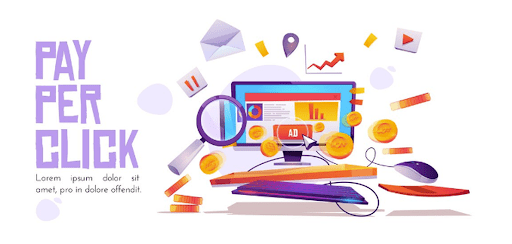Smart Campaigns for Smart Stores: Why PPC for eCommerce Is the Key to Growth
In today’s fast-paced digital marketplace, eCommerce brands face more competition than ever. Building an online store is just the beginning; driving traffic, converting customers, and scaling growth require a strategic marketing approach. As I have researched, paid advertising—particularly PPC for eCommerce—is one of the most powerful ways to accelerate brand visibility and increase revenue.
With platforms like Google leading the charge, businesses now rely heavily on google ads management services, google ads management company, and google ads management agency expertise to stay competitive. As per my knowledge, these specialized services are no longer a luxury—they are a necessity for brands looking to achieve measurable, sustainable growth.
The rise of automation and machine learning within adwords management services and google adwords services has transformed digital advertising from manual campaign management to intelligent, data-driven strategies. According to market research, businesses that invest in google adwords management services see higher ROI, faster scaling, and improved customer retention rates compared to those that rely solely on organic marketing methods.
The Role of PPC in eCommerce Growth
According to market research, eCommerce transactions across the globe have raised more than trillions in revenue with digital advertisements being key to this. Pay-Per-Click advertising or PPC enables web-based shops to access high intent populations that actively search after their products.
PPC campaigns are instant and have a measurable performance as opposed to traditional marketing. The effectiveness of PPC in eCommerce has been precision targeting as I have researched. By using superior algorithms and audience targeting, the brands are able to send personalized messages to the users at the point of purchase intent.
In addition, Google and other PPC campaigns are flexible. You have the opportunity to test various ad instances, also calculate budgets on the fly and monitor each click or conversion. This degree of openness means that marketing dollars are put to use in places where they will produce the most change.
Smart Campaigns: The Future of eCommerce Advertising
As per my knowledge, Google’s Smart Campaigns are transforming how eCommerce stores manage ads. Powered by artificial intelligence, Smart Campaigns automate ad creation, bidding, and optimization. This innovation allows small and large eCommerce brands alike to achieve professional-grade results without micromanaging every campaign detail.
These Smart Campaigns use machine learning to analyze user behavior, shopping patterns, and search trends. They automatically adjust keywords, placements, and bids to deliver optimal performance. As I have researched, such automation ensures ads are shown to users most likely to convert, enhancing both efficiency and profitability.
Smart Campaigns don’t just simplify marketing—they amplify it. For eCommerce businesses, that means more time focusing on operations, inventory, and customer service while the technology takes care of lead generation and sales optimization.
Why Data-Driven Advertising Matters
In modern eCommerce, data isn’t just important—it’s everything. As per market research, brands using data-driven PPC strategies experience 30–50% better campaign results compared to those that rely on generic ads.
A google ads management company uses advanced analytics to interpret data across every stage of the buyer journey. From click-through rates to conversion patterns, these insights help refine ad copy, adjust targeting, and identify untapped opportunities.
As I have researched, the combination of first-party data (from your website or CRM) and third-party insights (from ad platforms) gives brands a comprehensive view of customer behavior. This data-driven approach transforms advertising from guesswork into predictable, scalable growth.
Automation and AI: The Power Behind Smart Advertising
Automation and AI are the heart of PPC for eCommerce. Modern tools like Google’s Smart Bidding use real-time data to optimize performance across devices, locations, and demographics. According to my knowledge, automation removes human bias and manual errors, which allows campaigns to react in real-time to the evolving consumer behavior.
An example is when AI will notice that some keywords are performing better in the evening, then during that time, bids are automatically raised. In the same regard, it reduces bids on non performing keywords to maintain budgetary efficiency.
This continuous optimization process creates a self-learning system—one that improves with every click and conversion. As I have researched, this is the secret behind successful eCommerce scaling: letting smart systems do the heavy lifting while marketers focus on strategy.
Personalization: The Key to Conversions
Personalization is not a trend, it is an expectation. According to market survey research, almost 80 percent of customers who access online shopping would tend to shop with brands who provide personalized shopping experience.
PPC advertisement enables personalization on a large scale. Advertisers can use the experiences of the management services of the Google adwords to personalize their messages according to the intents and behavior of each shopper. As an illustration, remarketing campaigns provide ads to users, who left their carts, and dynamic ads to users that have previously seen a product.
This type of customization, as I have studied, enhances interaction, reduces the cost of acquisition, and leads to repeat buying, which are important elements of eCommerce success in the long term..
The Value of Expert PPC Management
Although automation is an important component, the human skill is still essential. The management agency of the Google ads has strong knowledge of the industry and creativity to make sure that a campaign is in line with the business objectives.
According to what I was able to find, professional agencies do not just set up ads, they also analyze competition, predict changes in the market, and create detailed advertising road maps. They also use AI insights to develop actionable plans that are both brand voice and audience psychology.
Combining human creativity with machine intelligence is the result of extraordinary outcomes as I have researched. The reason is that synergy allows the brands to expand at a sustainable level without overstretching budgets and resources.
Budget Optimization: Spending Smarter, Not More
Many eCommerce brands mistakenly believe success in PPC depends on large budgets. However, as per my knowledge, it’s not about spending more—it’s about spending smarter.
A qualified internet advertisement management firm employs performance measurement tools to make sure that each dollar is used to generate ROI. Advertisers are able to determine what produces the best results through constant testing, A/B experimentation, audience optimization, and keyword optimization.
As I have researched, this approach prevents wasted spend, increases return on investment, and creates a growth loop where each campaign funds the next phase of expansion.
The Evolution of eCommerce PPC Strategies
The world of PPC for eCommerce continues to evolve rapidly. Voice search, visual shopping, and cross-platform marketing are becoming increasingly integrated into paid strategies.
As per market research, the future of eCommerce advertising lies in omnichannel synchronization. It involves integrating Google Ads, social media, and display network into a single system. The unification of these channels makes the brands maintain uniformity in message and flawless customer experiences.
I have also found out that eCommerce stores that employ cross-channel strategies experience increased brand recognition and better customer lifetime value.
Conclusion
In conclusion, the power of PPC for eCommerce lies in its ability to combine technology, data, and creativity into one unified growth strategy. Smart Campaigns have made the advertising process democratic so that both small and big online stores compete equally.
According to what I know, the success is in the combination of automation, predictive analytics, and personalization of each campaign. Those brands that will adopt this digital change will not only grow at a quicker pace, but they will also be able to maintain their dominance in the market in the years to come.
For businesses looking to expand beyond Google’s ecosystem, working with a trusted meta ads agency, meta advertising agency, or meta ad agency can be a game-changer. These experts understand cross-platform dynamics, helping brands leverage Meta Ads Company and Meta Ads services for broader reach and deeper audience engagement.
As I have researched, the key to smart growth is simple: combine intelligent tools with expert strategy. In today’s digital economy, that’s what separates growing brands from thriving ones.



